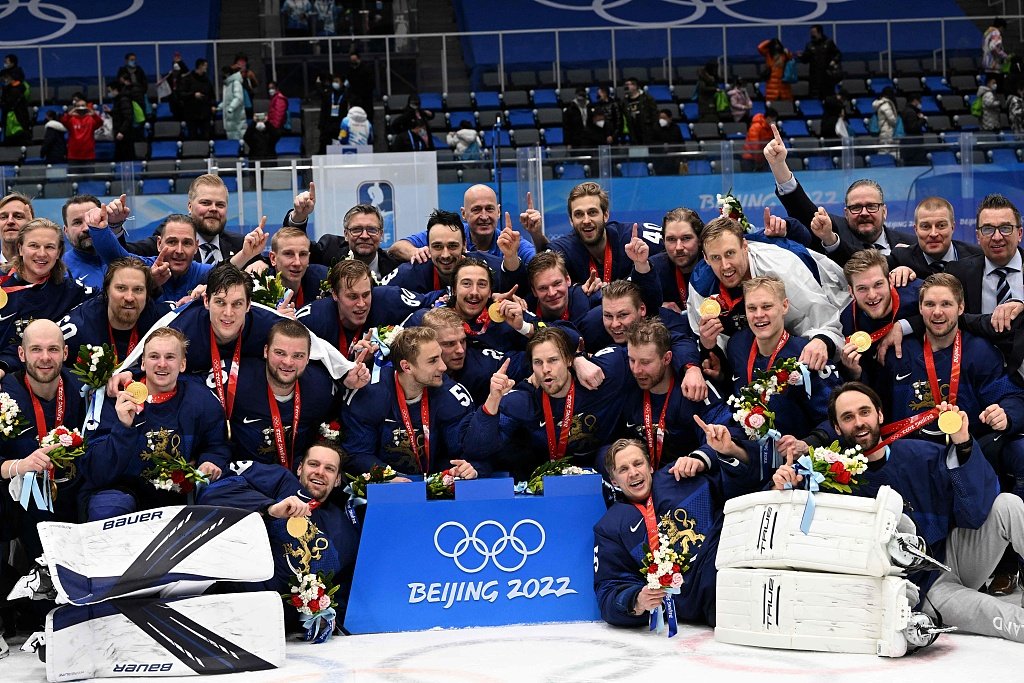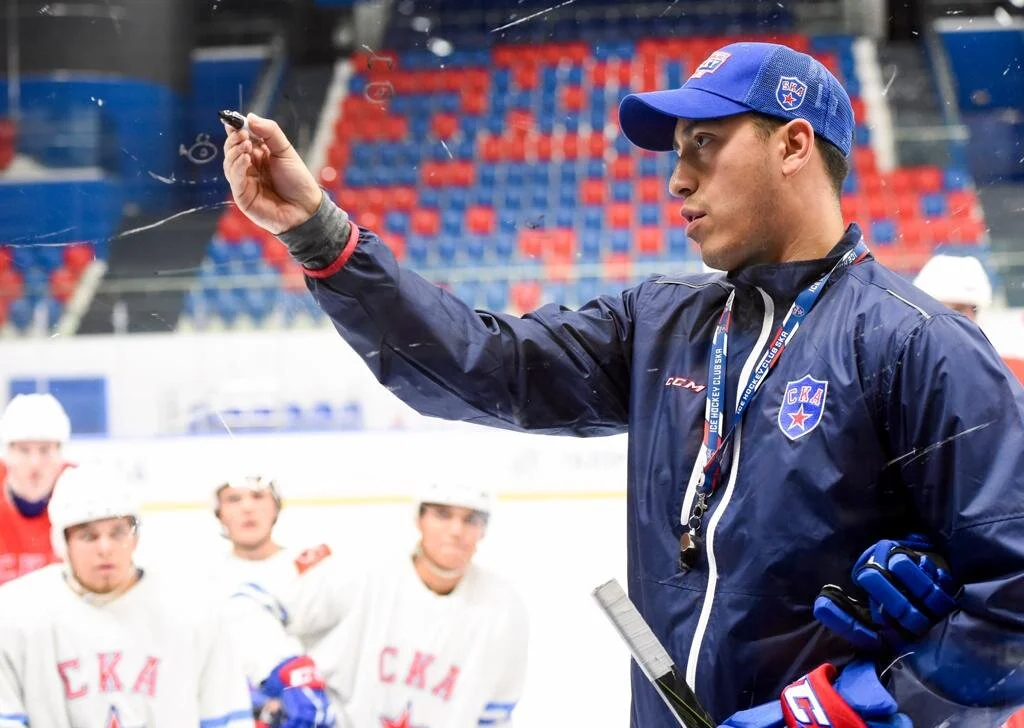AROUND THE PODIUM WITH LOU VAIRO (AND JARI KURRI)
Beijing 2022 brought with it the requisite surprises we’ve come to expect since 2018, those late-blooming squads and Cinderella emergents that now define Olympic hockey for me. Without the steady—and perhaps more predictable—ballast of the NHL, the tournament showcased talent from European domestic leagues. Jukka Jalonen’s Finland, which has punched above weight in international tournaments for forever, finally struck gold—an overdue and deserved celebration for a team that embodies playing with unity.
“I can’t tell what’s the secret. I think that our system is good,” Jari Kurri told me last year, when the Olympics still felt distant and the NHL was angling for participation. “I think we really pay attention to coaching and coaches. And also the goaltending coaches are getting involved at an early age. I think that’s very important that the program is good, and you have a chance to get better and better. You’re working with good coaches. The Finnish Ice Hockey Federation and the local teams in Finland, they work together and the federation, whenever they go to a tournament, they come back and they get the feedback for the club teams. They know what’s the level in the world right now, and what we need to do. Of course, we are a very small country. We have to be awake all of the time and maybe hopefully be a little bit ahead of everybody else so that we can succeed. I think that’s a good thing that we are awake and we have good coaches. And now we spread the news. We spread the knowledge of hockey to everybody, so communication is good and we work together.”
Awake they were. Finland defeated the Russian Olympic Committee in regulation, no small feat in light of the latter’s status as pre-tournament favorites. They won every game en route to their champagne-soaked locker room, including a come-from-behind barn burner against Sweden that left me gasping for air. I popped around the podium with 1984 Olympic coach Lou Vairo to get his take on each of the podium teams and their performances.
Vairo was a close friend of Anatoly Tarasov whose intimate knowledge of the Soviets helped Herb Brooks to defeat them in 1980 en route to gold. You can read more about that here.
SLOVAKIA
“I thought Slovakia was outstanding. I just loved watching them. I'm very happy that Slovakia got a medal. They made a great comeback rebuilding their hockey. If you look at the past and the great players that played for Czechoslovakia when it was one nation, there's nothing comparable. They produced Jozef Stumpel, Pavol Demitra, Miroslav Satan, Marian Hossa. They produce greatness. They hit a rough patch ten years ago and have slowly innovated. Their players play with a bit more Soviet style—they take chances, they attack, and most of all, the players are joyful out there. It’s not a tall task with severe pressure.”
“Juraj Slafkovský was great in the tournament. Time will tell on the type of player he becomes. They were a real team, and you have got to give it to their coach, Craig Ramsay. I was skeptical when they brought a foreign coach in, but I love this quote. He was saying, ‘We trust our guys. We want them to attack.’ Sounded a bit like Tarasov to me.”
Several comparisons have been made between Juraj Slafkovský and Eddie Olczyk. The rising Slovakian superstar became the first seventeen year old to score at an Olympics since Olczyk did it in 1984. Alongside Pat Lafontaine and Dave A. Jensen, Olczyk anchored what became known as The Diaper Line, a youthful standout for Lou Vairo’s 1984 U.S. Olympic Team tasked with following the “Miracle.”
RUSSIAN OLYMPIC COMMITTEE
“I was rereading Road to Olympus by Tarasov recently, and I don’t know why they aren’t playing like that anymore. They were rimming the puck around the boards a lot. The Russians’ biggest weapon used to be the first pass on the counterattack. It was often 20 to 30 meters to a man on the move. They didn’t play or pass like the Soviets did, from a cooperative or collective style. They didn’t play with the same creativity or take risks. Tarasov used to tell me to trust my players and encourage them to take logical risks. I still think Russia can be the leading hockey country in the world, but they’ve stepped away from everything that made them that.”
“I would bet that the game against Sweden was one of their best. The Swedes are outstanding and a great hockey nation, but their skill and spirit didn’t shine at this tournament. The Russians did what they had to do to beat Sweden.”
The full quote from Tarasov on the subject of risk: “In attack, there is always the right to take a risk. This provides and stimulates novelty in actions, improvisation, makes athletes devise unexpected moves and constantly improve and update their technical arsenal, their ‘family’ of techniques. All of this is ultimately aimed at the main goal, at victory.”
FINLAND
“Finland has done a marvelous job in hockey given that it’s a small country of 5 million. But there are benefits to that too. If you can get the best athletes to play hockey, and you can drive everywhere in three hours from one end of the country to the other, that makes it so much easier. The Federation has been able to be more organized, controlled. Finland deserved to win and they’re doing a great job. They’ve developed everything—great forwards, defensemen, goalies.”
One last interjection from Jari Kurri in that respect—”I think that in Finnish hockey, we play well as a team. I don’t think we have these big, super, super stars, but we really put attention to playing well together. We believe that we can beat no matter who we play against. I think that’s very important.”










